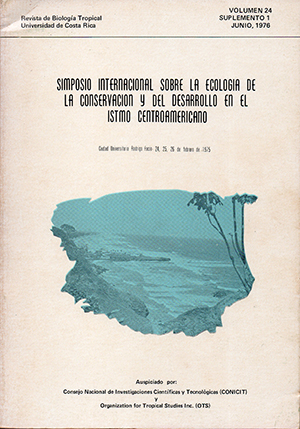Abstract
Soil conservation measures in Central America go back to the Maya civilization, in which terracing was employed. After the Spanish conquest, plowing, livestock raising, and the succession of social and political changes all contributed to accelerate erosion Through the past few decades, awareness of the need for soil conservation has again increased; El Salvador and Costa Rica began efforts in that direction in 1943. For sometime, the use of machinery and chemical fertilizers has masked the loss of topsoil, but under recent increases in population pressures, soil conservation measures are gaining in importance. Important agents of erosion in the tropics are heavy seasonal rains at high elevations, alternating with long dry seasons; wind erosion; and landslides after saturation of the soil during prolonged rains. Modern machinery often hastens soil removal, as do also overgrazing, deforestation and vertical crop rows. Under the present energy crisis, human labor is becoming again a significant element in crop production, and soil conservation becomes thereby more feasible and more important.References
Baldwin, M., C. S. Simmons, & W. F. Vanbeers 1954. Soil erosion survey of Latin America. The conservation Foundation and FAO of the U.N.
Cook, S. F. 1949. Soil erosion and population in Central Mexico. Ibero·Americana: 34. Univ. Calif. Press, Berkeley.
Cooke, C. W. 1931. Why the Maya cities of the Peten District, Guatemala were abandoned. J. Wash. Acad. Sci., 21: 283-287.
Lundell, C. L. 1940. The 1936 Michigan·Carnegie Botanical Expedition to British Honduras. Botany ofthe Maya Area. Carnegie Inst. Wash. Publ. 522, Paper XIV.
Pendleton, R. C. 1939. Soil erosion as related to land utilization in the humid tropics. Proc. 6th Pacifico Sci. Congr. 4: 905-920
Suárez de Castro, F. 1957. Las quemas como práctica agrícola y sus efectos. Fed. Nal. de Cafeteros Col., Bol. Tec., Vol. 2, No. 18.
##plugins.facebook.comentarios##

This work is licensed under a Creative Commons Attribution 4.0 International License.
Copyright (c) 1976 Revista de Biología Tropical


